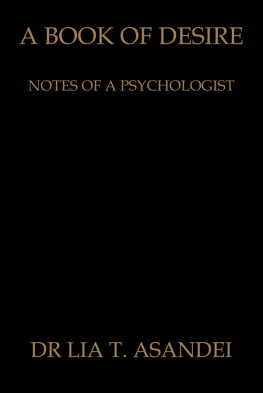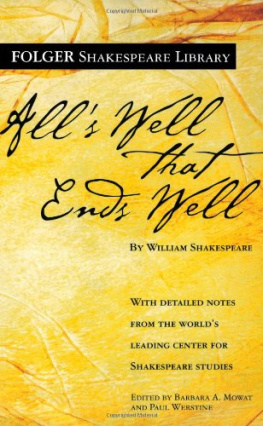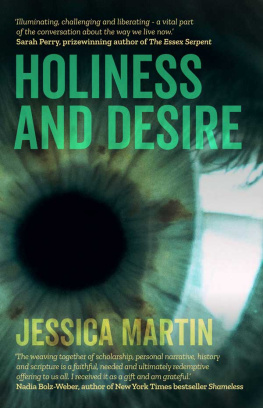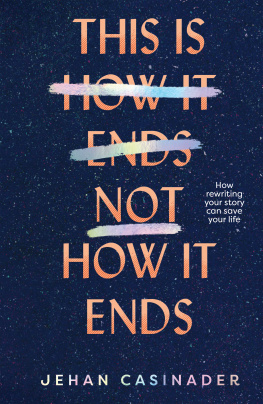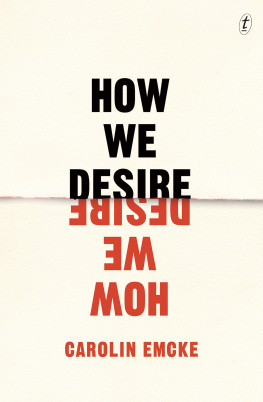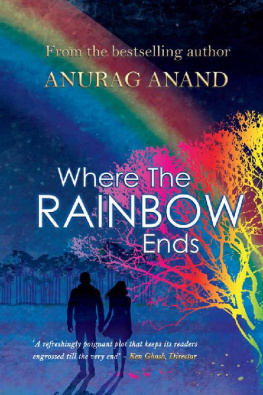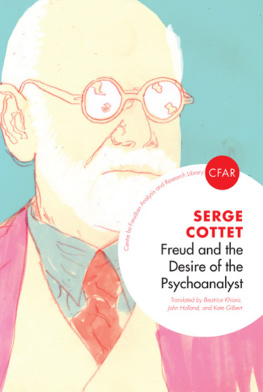Gerli - Celestina and the Ends of Desire
Here you can read online Gerli - Celestina and the Ends of Desire full text of the book (entire story) in english for free. Download pdf and epub, get meaning, cover and reviews about this ebook. year: 2011, publisher: University of Toronto Press, genre: Home and family. Description of the work, (preface) as well as reviews are available. Best literature library LitArk.com created for fans of good reading and offers a wide selection of genres:
Romance novel
Science fiction
Adventure
Detective
Science
History
Home and family
Prose
Art
Politics
Computer
Non-fiction
Religion
Business
Children
Humor
Choose a favorite category and find really read worthwhile books. Enjoy immersion in the world of imagination, feel the emotions of the characters or learn something new for yourself, make an fascinating discovery.

- Book:Celestina and the Ends of Desire
- Author:
- Publisher:University of Toronto Press
- Genre:
- Year:2011
- Rating:4 / 5
- Favourites:Add to favourites
- Your mark:
- 80
- 1
- 2
- 3
- 4
- 5
Celestina and the Ends of Desire: summary, description and annotation
We offer to read an annotation, description, summary or preface (depends on what the author of the book "Celestina and the Ends of Desire" wrote himself). If you haven't found the necessary information about the book — write in the comments, we will try to find it.
Gerli: author's other books
Who wrote Celestina and the Ends of Desire? Find out the surname, the name of the author of the book and a list of all author's works by series.
Celestina and the Ends of Desire — read online for free the complete book (whole text) full work
Below is the text of the book, divided by pages. System saving the place of the last page read, allows you to conveniently read the book "Celestina and the Ends of Desire" online for free, without having to search again every time where you left off. Put a bookmark, and you can go to the page where you finished reading at any time.
Font size:
Interval:
Bookmark:
CELESTINA AND THE ENDS OF DESIRE
E. MICHAEL GERLI

University of Toronto Press Incorporated 2011
Toronto Buffalo London
www.utppublishing.com
Printed in Canada
ISBN 978-1-4426-4255-3

Printed on acid-free, 100% post-consumer recycled paper with vegetable-based inks.
Library and Archives Canada Cataloguing in Publication
Gerli, E. Michael
Celestina and the ends of desire / E. Michael Gerli.
Includes bibliographical references and index.
ISBN 978-1-4426-4255-3
1. Rojas, Fernando de, d. 1541. Celestina. 2. Desire in literature. I. Title.
PQ6428.G47 2011 862.2 C2011-900936-6
This book has been published with the help of a grant from the Program for Cultural Cooperation between Spains Ministry of Education and Culture and United States Universities.
University of Toronto Press acknowledges the financial assistance to its publishing program of the Canada Council for the Arts and the Ontario Arts Council.

University of Toronto Press acknowledges the financial support of the Government of Canada through the Canada Book Fund for its publishing activities.
To the memory of C.B.J., who plumbed the depths and taught us to avoid the shallows.
Unless otherwise mentioned, all citations from Celestina in Castilian and their accompanying English translations are taken from Fernando de Rojass Celestina, edited with an introduction and notes by Dorothy Sherman Severin (Warminster, UK: Aris and Phillips, 1987). The latter edition contains a facing-page English translation from 1631 by James Mabbe. From time to time, however, when Mabbes translation fails to interpret certain words accurately (for example, when it renders the Spanish word Dios [God] as Providence), I have taken the liberty to substitute the word for its more accurate English form. All other translations are my own. Mabbes 1631 translation was first edited and published by James Fitzmaurice-Kelly in 1894 (rpt. New York: AMS Press, 1967). Severins edition includes interpolations taken from Mabbes earlier 1598 manuscript not included in the 1631 printing and in Fitzmaurice-Kellys edition.
This book is the product of several years of research, reflection, and teaching. During the course of its coming together, it was my privilege to share and discuss ideas about Celestina with my students at Georgetown University, the University of Virginia, and Emory and Duke universities, where I had the opportunity to offer seminars on Fernando de Rojass work. The students lively interest in the text, plus their spirited discussion, was what first convinced me that I should pursue the writing and completion of this study. I am grateful also to the colleagues who participated in my 2009 National Endowment for the Humanities Summer Seminar for College Teachers on Celestina and the Threshold of Modernity, and especially to my friends and colleagues in the Department of Spanish, Italian, and Portuguese at the University of Virginia for their observations, comments, good conversation, and fine fellowship. Among the latter, I am particularly indebted to Javier Herrero for his immense erudition, persistent good humour, unfailing goodwill, and wry irony. These are rare qualities indeed, which extend well beyond the scope of the present study and continue to play a part in our friendship and ongoing conversations. I am beholden as well to Alison Weber for her accommodating comments, her sharp insights into the representation of gender in early modern texts, and for restraining me from reading too much like a man. She reminded me pointedly that, although Melibea and the women in Celestina may be free to speak, freedoms just another word for nothing left to lose, as Janis Joplin sang in a much later, equally double-edged age of change and liberation. My gratitude also extends to my old friends and colleagues Julian Weiss and Robert Archer, whose kind invitation to present some of my work-in-progress at Kings College and the Cortauld Institute in 2006 played a crucial role in , and the latter for having appeared out of the ether like a cybernetic guardian angel at a crucial moment to resolve my doubts about Mirabella and Melibea, assuring me via a pdf file of one of her articles that I had not lost my mind somewhere in the library. Joe Snow also helped at critical junctures, allowing me to draw upon his prodigious knowledge of Celestina and over thirty years of friendship by responding to countless queries on all too many things.
Additionally, I wish to express gratitude to my colleagues, Eukene Lacarra Lanz and the late Louise Fothergill-Payne, for their enthusiastic response to some earlier drafts of some chapters. Sam Armistead, whose more than sizeable knowledge of proverbs, traditional poetry, folklore, and more than arcane arcana also pushed me along with some astonishing linguistic, textual, and cultural archaeology required to unpack some of the more recondite, and gamey (in all senses), passages of Rojas masterpiece. I am beholden also to my editors at the University of Toronto Press, Suzanne Rancourt, Barbara Porter, and Charles Stuart, for their unfailing assistance with the publication of this book; to those anonymous readers for the press who offered sensitive, detailed, and well-reasoned critiques of the original manuscript; and to the Dean of the College of Arts and Sciences and the Vice President for Research and Graduate Studies at the University of Virginia, who provided generous financial support for the completion of this project. Finally, the greater debt is to my friend and teacher, the late Carroll B. Johnson, to whose memory I dedicate this book. Although a mere five years older than I, from the moment he was fresh out of Harvard he became a guide and mentor. Redde quod debes.
Earlier versions of two chapters appeared as essays in books:
CELESTINA AND THE ENDS OF DESIRE
Longing, we say, because desire is full of endless distances.
Robert Hass, Meditation at Lagunitas
Qu esfuerzo!
Qu esfuerzo del caballo por ser perro!
Qu esfuerzo del perro por ser golondrina!
Qu esfuerzo de la golondrina por ser abeja!
Qu esfuerzo de la abeja por ser caballo!
Federico Garca Lorca, Muerte, Poeta en Nueva York
They told me to take a streetcar named Desire, and then transfer to one called Cemeteries
Tennessee Williams, A Streetcar Named Desire
This is a book about one of the most popular books of early modern Europe, Fernando de Rojass Tragicomedia de Calisto y Melibea, which has been commonly referred to as Celestina, the name of its chief female protagonist, since shortly after its initial publication at Burgos in 1499. Celestina the book, like the character whose name it ultimately adopted, traffics in desire, and when it was first published offered new, remarkable representations and expressions of it to an avid reading public more accustomed to witnessing desires exaltation, interdiction, censure, or repression.
The present work argues that, while the control and policing of desire have been at the centre of human social formations since the beginning of civilization, but especially in early Christian and medieval times, its representation in
Next pageFont size:
Interval:
Bookmark:
Similar books «Celestina and the Ends of Desire»
Look at similar books to Celestina and the Ends of Desire. We have selected literature similar in name and meaning in the hope of providing readers with more options to find new, interesting, not yet read works.
Discussion, reviews of the book Celestina and the Ends of Desire and just readers' own opinions. Leave your comments, write what you think about the work, its meaning or the main characters. Specify what exactly you liked and what you didn't like, and why you think so.



